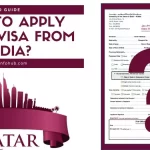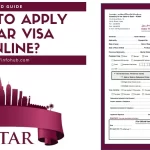If you’re working or planning to work in the United Arab Emirates (UAE), understanding the country’s labour law is essential. Whether you’re an employer managing a diverse workforce or an employee navigating your rights and responsibilities, the UAE’s legal framework sets clear rules to protect both sides. The most recent overhaul came with Federal Decree-Law No. 33 of 2021, which took effect on 2 February 2022. This law replaced older regulations and introduced modern, flexible provisions to match the UAE’s growing economy and international standards.
In this guide, you’ll learn exactly what labour law in the UAE means for you: from contracts and leave entitlements to end-of-service benefits and workplace rights.
Who the Labour Law Applies To
The UAE Labour Law governs nearly all private sector employees and employers, covering both UAE nationals and expatriates. However, there are a few exceptions you should know:
- Government employees (federal and local level) follow separate laws.
- Armed forces, police, and security personnel are not covered by this law.
- Domestic workers, such as housemaids or drivers, have their own dedicated legislation.
If you’re in the private sector, this law is your main reference point.

Types of Employment Contracts
Since 2022, the UAE has shifted to fixed-term contracts only. Unlimited or open-ended contracts are no longer valid. Here’s what that means for you:
- Fixed-term contract: You and your employer agree on a set period (up to 3 years, renewable).
- If you previously had an unlimited contract, it should already have been converted to a fixed term.
- Your rights, such as leave and end-of-service benefits, continue under the new format.
This change gives both employees and employers more clarity about the length of employment.
Working Hours and Overtime
Normal working hours in the UAE are 8 hours per day or 48 hours per week. There are some key details you’ll want to remember:
- During Ramadan, working hours are reduced by 2 hours per day.
- Overtime is allowed but usually capped at 2 extra hours per day.
- If you work overtime, you’ll receive 125% of your basic hourly rate, or 150% if it’s late night or on a holiday.
You also have the right to at least one rest day per week, typically Friday or Sunday, depending on your employer’s policy.
Leave and Holiday Entitlements
One of the most important parts of the law is your entitlement to time off. Here’s a breakdown:
- Annual Leave: After completing one year of service, you get 30 calendar days of paid leave per year. If you’ve worked more than six months but less than a year, you’re entitled to 2 days of leave per month.
- Sick Leave: Once probation ends, you can take up to 90 days per year:
- First 15 days: full pay
- Next 30 days: half pay
- Final 45 days: unpaid
- Maternity Leave: Female employees get 60 days (45 paid, 15 unpaid), with the option to extend in special cases.
- Public Holidays: You’re entitled to all official UAE holidays, which typically total 11–14 days per year, depending on the Islamic calendar.
End-of-Service Benefits
If you leave your job after at least one year of continuous service, you’ll receive an end-of-service gratuity. It’s calculated based on your last basic wage, excluding allowances or bonuses:
- 21 days’ basic wage for each year of service up to 5 years.
- 30 days’ basic wage for each year beyond 5 years.
- The total gratuity is capped at two years’ wages.
To simplify the process, many employees use tools like gratuitycalculator-uae.net, which helps you estimate how much you’re entitled to before resigning or changing jobs.
Workplace Rights and Protections
The law also guarantees you key protections, including:
- Equal pay for equal work, regardless of gender.
- Non-discrimination on the basis of race, religion, nationality, or disability.
- Safe working conditions, with employers required to provide training, health measures, and protective equipment.
- Employers may not confiscate your passport or force you to remain after your contract ends.
If you face violations, you can file a complaint with the Ministry of Human Resources and Emiratisation (MoHRE), which handles dispute resolution.
Step-by-Step: What to Do if Your Rights Are Violated
- Gather Evidence: Keep copies of your contract, payslips, and any correspondence.
- Contact MoHRE: File a complaint through the MoHRE website, app, or hotline (80060).
- Mediation: MoHRE will first try to resolve the dispute between you and your employer.
- Labour Court: If mediation fails, your case will be referred to court for a final decision.
This process is designed to be free and accessible to all workers.
Labour law in the UAE is designed to create balance between protecting employees and giving employers flexibility to thrive in a fast-growing economy. If you’re working here, you’ll benefit from clear entitlements: fair working hours, proper leave, end-of-service gratuity, and legal protection against discrimination.
By knowing your rights and the proper steps to take if something goes wrong, you can feel confident and secure in your career journey in the UAE.
Frequently Asked Questions
Do probation periods exist under UAE labour law?
Yes, probation can last up to 6 months, and it must be clearly stated in your contract.
Can my employer terminate me without notice?
Not usually. Employers must give written notice (30–90 days, depending on contract). However, immediate dismissal is possible in cases like gross misconduct.
What happens if I resign during probation?
You must give at least 14 days’ written notice. If you’re leaving to join another UAE employer, your new employer may need to compensate the old one.
Do part-time workers get leave and benefits?
Yes, part-time and temporary workers are entitled to leave and benefits on a pro-rata basis.
Can my employer keep my passport?
No, keeping passports is illegal. You must retain your own personal documents.








